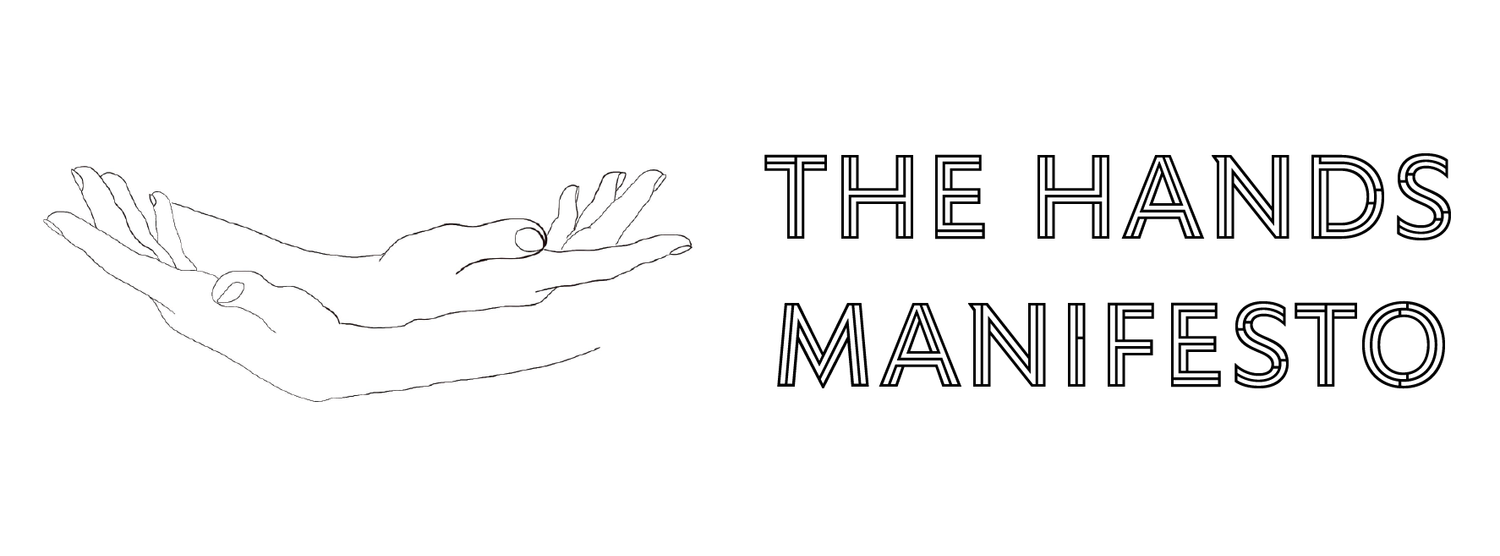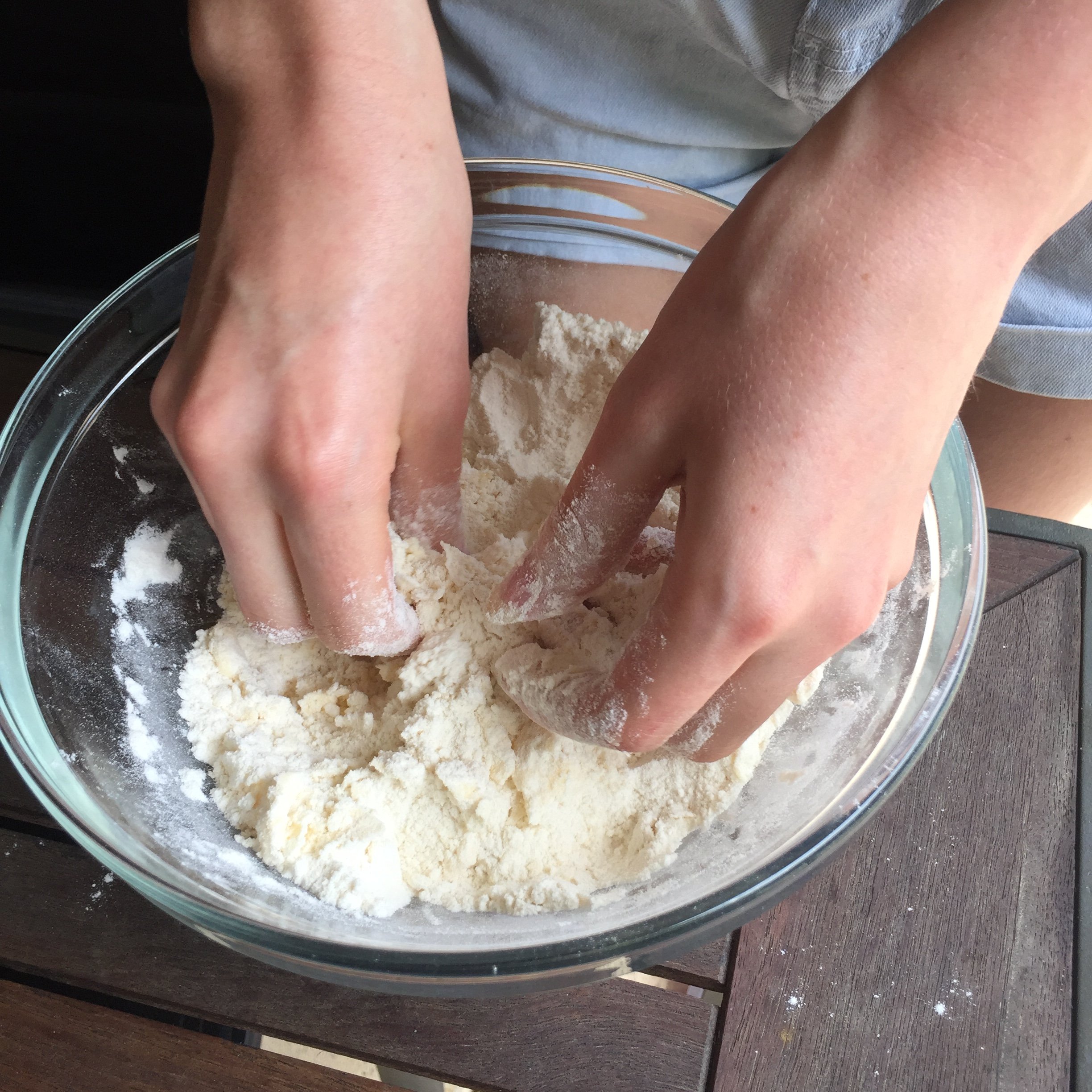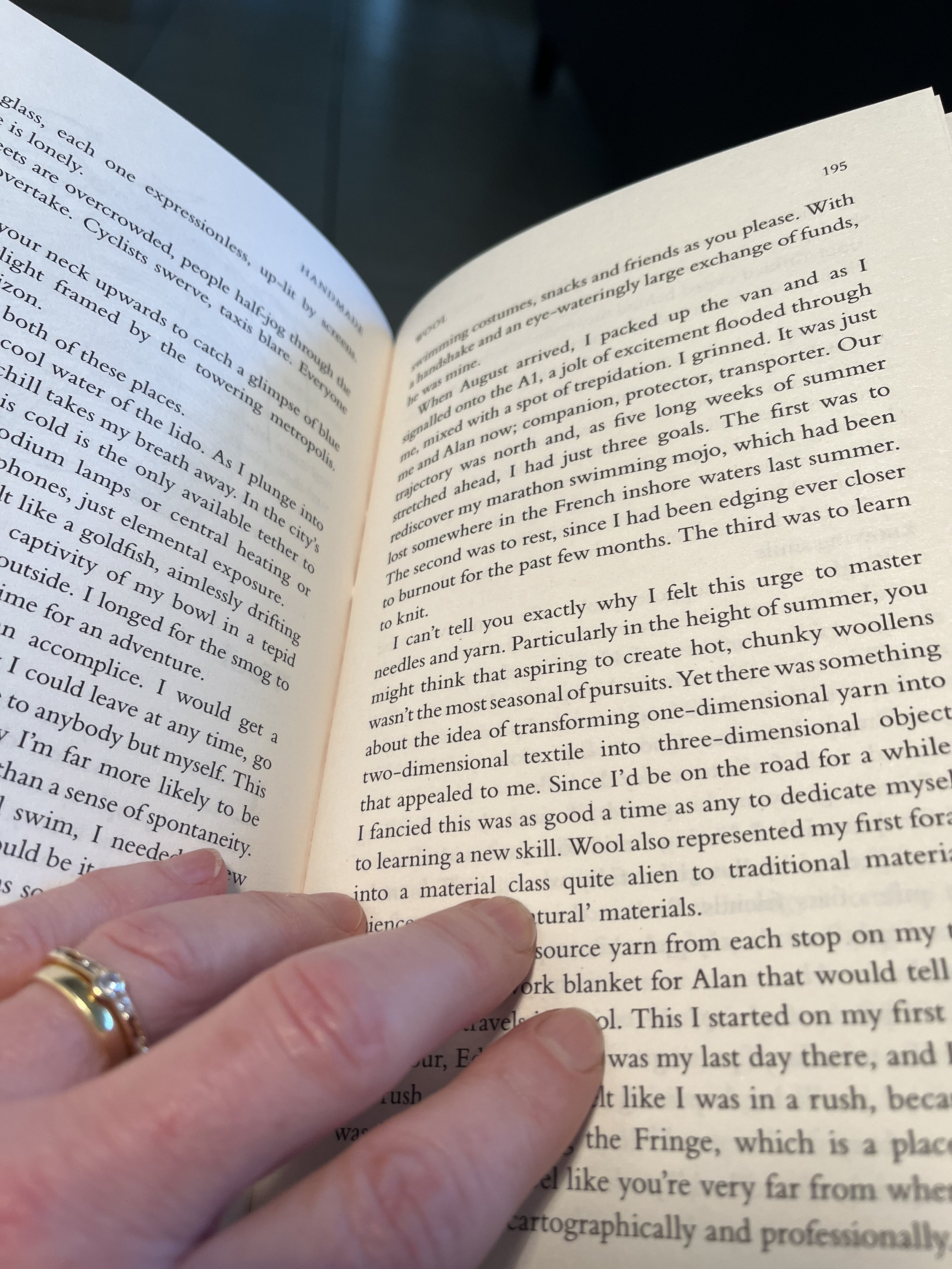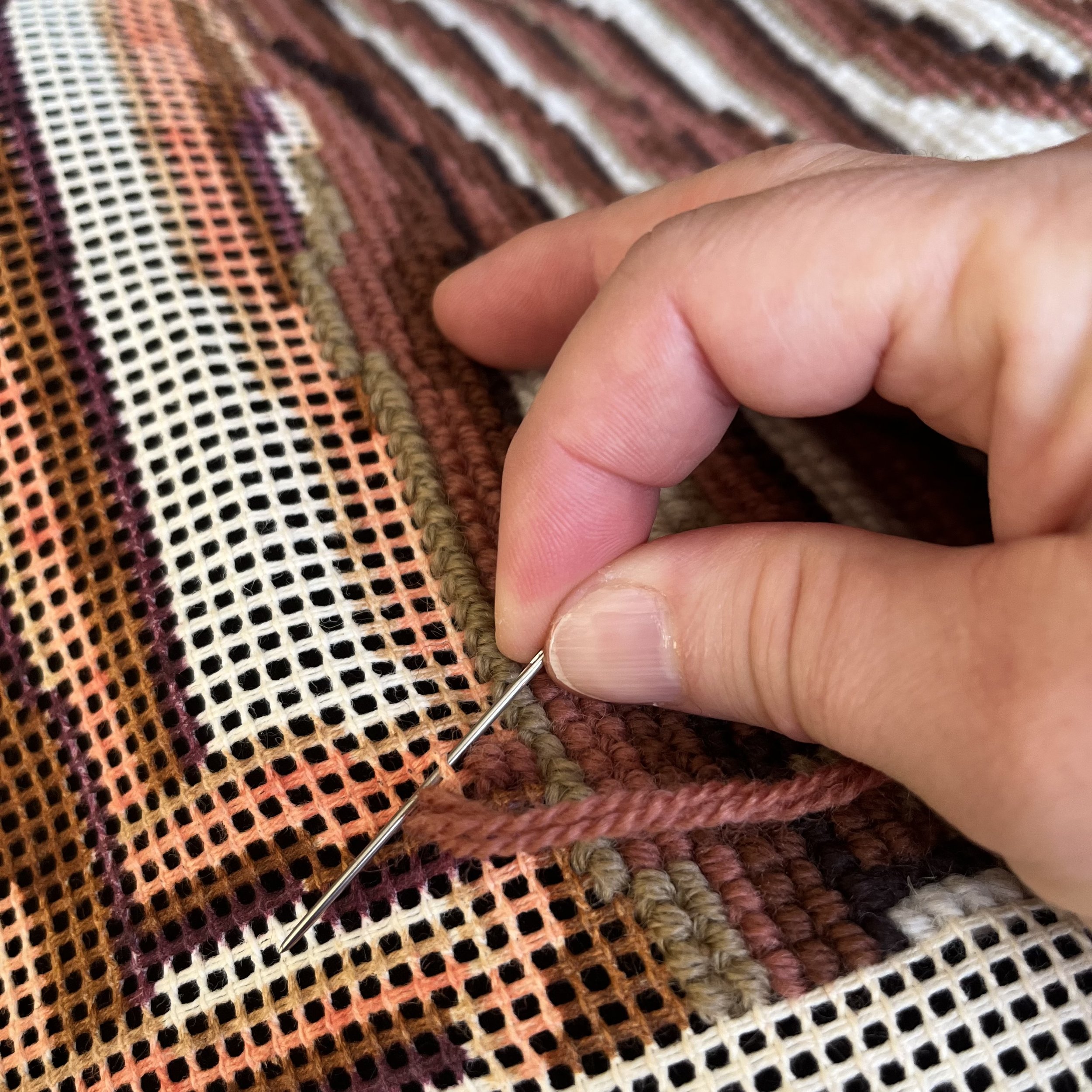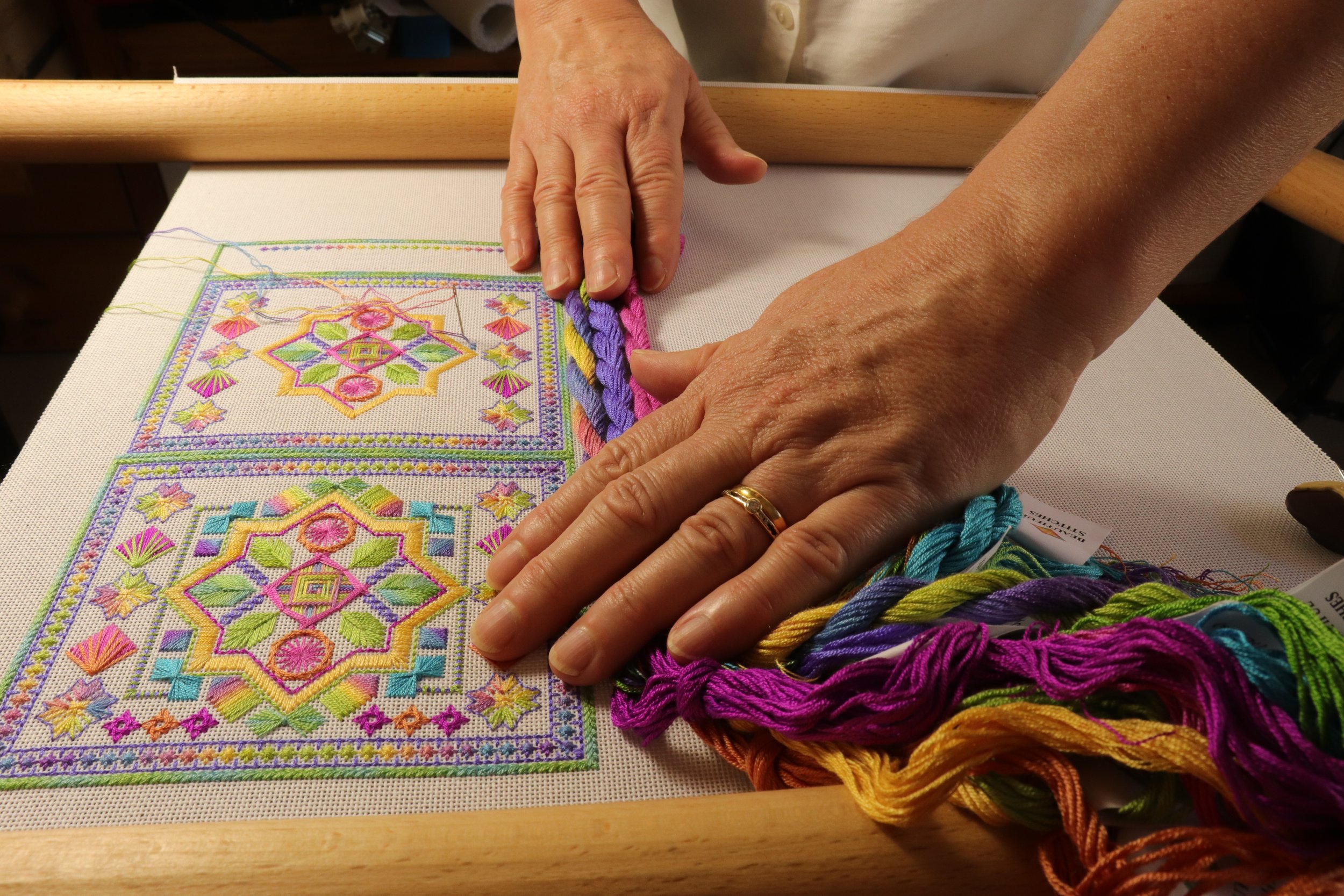Blog
When the mind gets flu: A creative remedy
After my kids moved across the country, I had what I can only describe as "mental flu" - that emotional overwhelm that hits when life shifts beneath your feet. My remedy? Hours of gentle stitching with my turtle needlepoint project, one stitch at a time.
It got me thinking: just like we all need different medicines for physical ailments, we each need our own creative remedies for mental wellness. The key is getting curious about what works specifically for YOU.
The power of towers
There is plenty of research that clearly indicates that children exposed to free play with blocks will develop skills in all of these areas: problem solving, imagination, self-expression, mathematics, continuity and permanence, creativity, science, self-esteem, social and emotional growth, and fine and gross motor skills. But what about me? Why do I love it so much?
“Making something pretty?”
Despite the lack of written words here for the past couple of years, The Hands Manifesto hasn’t been completely languishing. Long COVID and then lots of teaching interrupted my flow for a while. But I’ve continued talking about these ideas in a variety of forums. Some of the responses have been…. interesting. Many wonderful positives, and a few surprises too!
Calming Cooking
Life loses it’s complexity and richness if you pare everything down to the fastest, most convenient route. It’s one of the reasons I am so passionate about The Hands Manifesto. Taking the slower route, making something with your hands, discovering the simple magic that comes from combining ingredients into something that is more than a sum of the parts. In my family, simple home cooking is good for mind, body and soul.
Resting hands
There has been a break in posts here because my hands and I have been travelling and resting. In this post I explore the idea that resting for me included returning to the simple pleasure of stitching with no expectations. It seems like a possible contradiction that resting comes through doing, but for me there was such comfort in letting my hands do what they love best, to no set timetable, just for a while.
Touching history
Although we live in a world where our life is filled with “stuff”, where rampant material consumption is damaging our planet, touching and holding some physical objects is really important and precious. They connect us to history - to the notable figures of the past as well as to the ordinary people who form the backdrop to our personal stories. This post explores some of my personal favourites.
Learning through doing
In the craft and maker world, learning through doing is a natural approach. We expect to learn a new process by observing someone else do it , using our hands to have a go ourselves, and then honing that skill through repeated practice. Learning through doing in a group can be even more powerful as everyone has different ideas and experiences to contribute, building confidence together, thus enabling an individual to gain so much more than they might by working alone. I would love to see more of that dynamic, multidimensional learning taking place in our traditional education institutions.
The tactile pleasure of books
The connection between our hands and the physical books we read is so obvious that we rarely stop to think about it. And yet in a very real sense, our hands are the conduit between our brain and the words, ideas and images recorded in the pages.
Are our children losing manual dexterity?
Are our children losing manual dexterity? Should we be worried? I think so - and this week I explain why.
Mindful Making
When my hands are busy stitching, the chatter in my head calms down. Ruminations about the past and worries about the future take a back seat to simply enjoying the rhythm of my needle and thread.
Time on our hands
Hands and time are linked in well worn phrases. We talk about wanting to “turn back the hands of time” when we wish to return to a former time and place, or we have “time on our hands” when we have some spare time. Exploring the link between our hands and the passage of time is a truly beautiful way to consider aspects of both.
The heart in handwriting
I treasure the handwriting that links me to the people I love. There is something indescribably special about being able to hold the tangible evidence of their thoughts and emotions in my own two hands.
Our hands - what’s beneath the skin?
Thus far in our journey, I've talked a lot about the philosophy of using our hands. But what are they exactly and how do they work? This week we are making a brief detour into the world of anatomy. If we are going to continue to explore the role of our hands in our lives, it's helpful to know a little bit more about exactly how they work.
Jottings on Gender
I feel very strongly that we need to be aware that understanding gender participation and representation in the world of hand work is really important. We need to make sure that the discussion is not just about valuing manual labour as a profession, and nor is it only about the value of the items produced. It's about valuing the hand work process itself. And to do that, I believe that it’s crucial that we make sure that the voices and experiences of both genders are equally represented in the discussion.
Building Confidence
We need a place in our lives where we can turn off judgement and just be ourselves. Where instead of our activities being linked to external expectations and measured outcomes, they are linked to building an internal sense of well being and confidence. I can think of few better ways to achieve this than by making something with our hands.
Making Connections
Put a group of people in a room “doing” something and the emotional barriers start to fall. It’s as though the sheer act of focussing on a task with the hands allows people to be more open and vulnerable.
Who Am I - Academic or maker?
We live in a culture that largely demeans hand work when compared with academic work. I believe that by making this division we do a disservice to both craftsmanship and academic learning.
Welcome to the Hands Manifesto
I believe that making things with our hands is absolutely fundamental to being human. It enables us to look outward and learn about the world around us as well as looking inward to understand ourselves.
